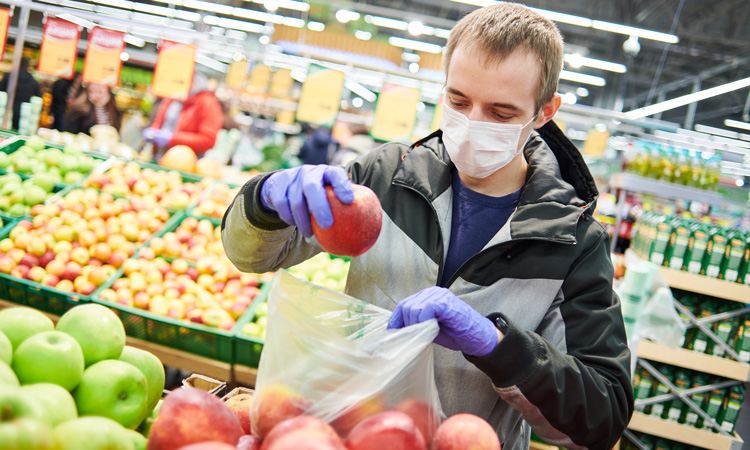FSA calls for further collaboration to address food system challenges
- Like
- Digg
- Del
- Tumblr
- VKontakte
- Buffer
- Love This
- Odnoklassniki
- Meneame
- Blogger
- Amazon
- Yahoo Mail
- Gmail
- AOL
- Newsvine
- HackerNews
- Evernote
- MySpace
- Mail.ru
- Viadeo
- Line
- Comments
- Yummly
- SMS
- Viber
- Telegram
- Subscribe
- Skype
- Facebook Messenger
- Kakao
- LiveJournal
- Yammer
- Edgar
- Fintel
- Mix
- Instapaper
- Copy Link
Posted: 8 July 2020 | Sam Mehmet (New Food) | No comments yet
Speaking to the Westminster Food & Nutrition Forum seminar: Developing a new National Food Strategy for England, Food Standards Agency (FSA) Chief Executive, Emily Miles, called for closer cross-sector collaboration.


Food Standards Agency (FSA) Chief Executive, Emily Miles, has called on Government, private sector, and civil society to work closer together to address the challenges facing the food system.
Miles said: “I want to argue that obesity, supply shocks, and environmental degradation require Government to think fundamentally differently about our roles, how we work together, how we work with the private sector and civil society, and how we all attend to the consumer interest.”
COVID-19
Miles went on to explain that the COVID-19 pandemic has revealed the strengths and weaknesses of the UK’s – and the global – food system. She stated that the pandemic has taught us that:
- Supply and food safety have been maintained in difficult circumstances
- Governments and local government across the UK moved quickly to change policies and practices to help keep food on shelves
- The private sector pivoted from supplying wholesale and catering, to supplying retail
- Government, local government, the private sector and civil society worked at great speed to give priority access to vulnerable consumers to food parcels and supermarket slots.
However, despite these positives, Miles also stressed that not everyone received the necessary support, with the FSA COVID-19 consumer tracker revealing that one in six have cut meals or portion sizes because of worries about money since the beginning of the lockdown.
“I don’t think we yet know if diets improved or got worse; if environmentally sustainable practices were promoted rather than ignored; and if residual food poverty will be uncomfortably endemic in the UK for some time,” Miles said.
However, she stressed that these questions of nutrition and obesity, food supply, food poverty, food waste, and the environmental cost of producing and selling food, are not for the FSA to solve. “Food safety and authenticity are our primary concern,” she said. “These questions sit squarely on the shoulders of other parts of Government, such as Defra, Public Health England and Public Health Wales, DAERA, Department for International Trade, Department for Work and Pensions, and devolved administrations.
“This segregation of activity within Government is largely invisible to outsiders. That is why I think we need to join up better internally in Government and with devolved administrations to work with the private sector and civil society. Given what is at stake, Government needs to act with impatience, boldness and ambition, to safeguard food you can trust.
“COVID-19 has shown us what happens when the country unites around a common purpose and the Government provides leadership. There were new rules and laws and powerful financial incentives. But businesses did the right thing not just because of the law. We saw a lot of behaviour change because of common endeavour, a shared vision, a common understanding of the risk, and a common view on how to mitigate the risk.
“We will go further, faster, if the industry, civil society and local government are jointly committed to tackling these big systemic challenges alongside government, from a place of common purpose. I think Government, by whom I particularly mean the politicians and senior officials in Wales, Scotland, Northern Ireland and Westminster, need to nourish a deep, shared commitment with those across the food system to tackling these systemic challenges.”









